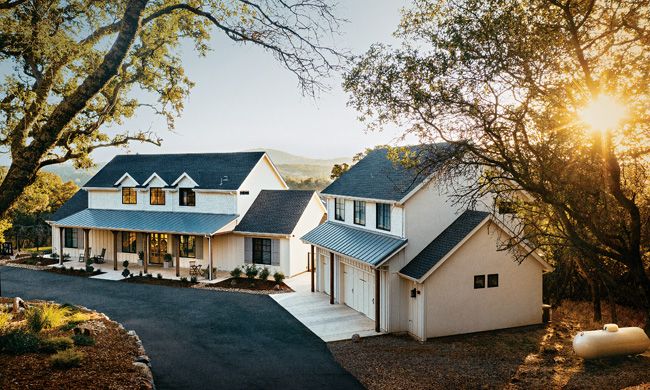
Clean Energy Home Upgrades: Make dependable environmental improvements
When you’re considering upgrades for your home, earth-friendly enhancements that impact your energy usage are smart investments. Energy-saving home upgrades can offer long- and short-term advantages for the earth, your wallet and even your safety.
Many homeowners evaluate their energy needs as they plan home improvements. There are several low-carbon, resilient energy options available that can help safeguard your family. Consider these environmentally friendly upgrades to diversify your home’s energy sources, reduce energy consumption and ensure your home is well-prepared to withstand interruptions to power service if the electrical grid fails.
Diversify Energy Sources
The growing conversation to “electrify everything” will require an overhaul on the aging electric grid just to manage the increase in demand. Accomplishing this will take decades and cost billions, according to the Department of Energy. In fact, according to a study conducted by Acupoll Precision Research on behalf of the Propane Education & Research Council (PERC), 54% of respondents believe electricity for everything will be too expensive for taxpayers while 70% strongly agree Americans should have a choice when it comes to their energy source. Propane is a clean, affordable and abundant energy option that reduces carbon emissions right now. Using propane appliances like furnaces, water heaters, fireplaces and kitchen appliances alongside other energy sources reduces the strain on the fragile electrical grid. Unlike electric appliances, propane appliances can work even during power outages.
Seal In Energy
Outdated doors and windows often lack energy benefits. Newer models have stronger, thicker panes that reduce the transfer of heat from inside to outdoors (and vice versa in the warmer months). Updating doors and windows allows you to easily repair any cracks or faulty seals that make it easy for energy to escape. When your home is well-insulated, your heating or cooling system works more efficiently.
Consider Solar Panels
When many homeowners think of renewable energy, they often think “solar.” Some states are mandating solar adoption, and while financial rebates help, solar panels are still considered an expensive upgrade for many people. The number of panels you need depends on your geographic location and weather, as well as the size of your home and your family’s energy consumption habits, which can add up. If you have access to propane and electricity, and are planning to upgrade to solar, consider adding propane appliances to offset the energy load required from your solar system.
Install a Backup Power Source
The Department of Energy’s “Electric Disturbance Event Annual Report” showed an increase in power outages from 2000 to 2020. More than half of consumers nationwide indicated they or a close family member or friend have been personally impacted by a power outage in the past two years, according to PERC.
As a result, many homeowners are saying “yes” to backup power generators. A propane standby generator can be a key part of resilient home upgrades by offering supplemental electricity in as little as 10 seconds after an outage. Propane doesn’t degrade over time, making it an ideal standby power fuel. Plus, it’s cleaner than diesel so you can keep your home functioning and family safe while being a good steward for the environment.
Increase Energy Efficiency
While landscaping plays an important role in curb appeal, it also serves more practical purposes. Thoughtfully placed trees and shrubs can block the heat that comes from powerful direct sunlight while serving as a break against blustery winds and providing a natural form of external insulation for the home. In outdoor living spaces, propane-powered appliances can offer increased energy efficiency. For example, propane can power full outdoor kitchens, fireplaces and fire pits, patio heaters, flame lighting or pool and spa heaters.
Find more ideas and information to inspire your earth-friendly home upgrades at Propane.com.
When the Grid Fails
In 2021, a winter storm decimated a major electrical power grid, leaving thousands of Americans in the dark and cold. Some people lost their lives while others battled to overcome extensive damage to their homes and businesses.
Jennifer Borget’s family is one of many that weathered those winter storms. However, the Borget family home used propane to power their water heater, stove, furnace and fireplace.
“When your power goes out, you can still use some propane appliances,” said Borget, who blogged about her experience. “This is one of those things I didn’t realize but learned during the historic winter storms. When the power was intermittent, our propane-powered fireplace and water heater quickly warmed our family.”
One year later, the Borgets are discussing investing in a standby generator to mitigate future power outages.
Another way to reduce the risk of large-scale disasters is increasing Americans’ reliance on a broader mix of energy sources. Using a combination of propane, solar, electricity and natural gas can keep homes and businesses alike running efficiently and safely.
Relying on alternative energy sources like propane can also make a meaningful environmental impact in the long-term while offering short-term advantages, including continued access to power during emergencies when another energy source fails.
SOURCE: Propane Education & Research Council






